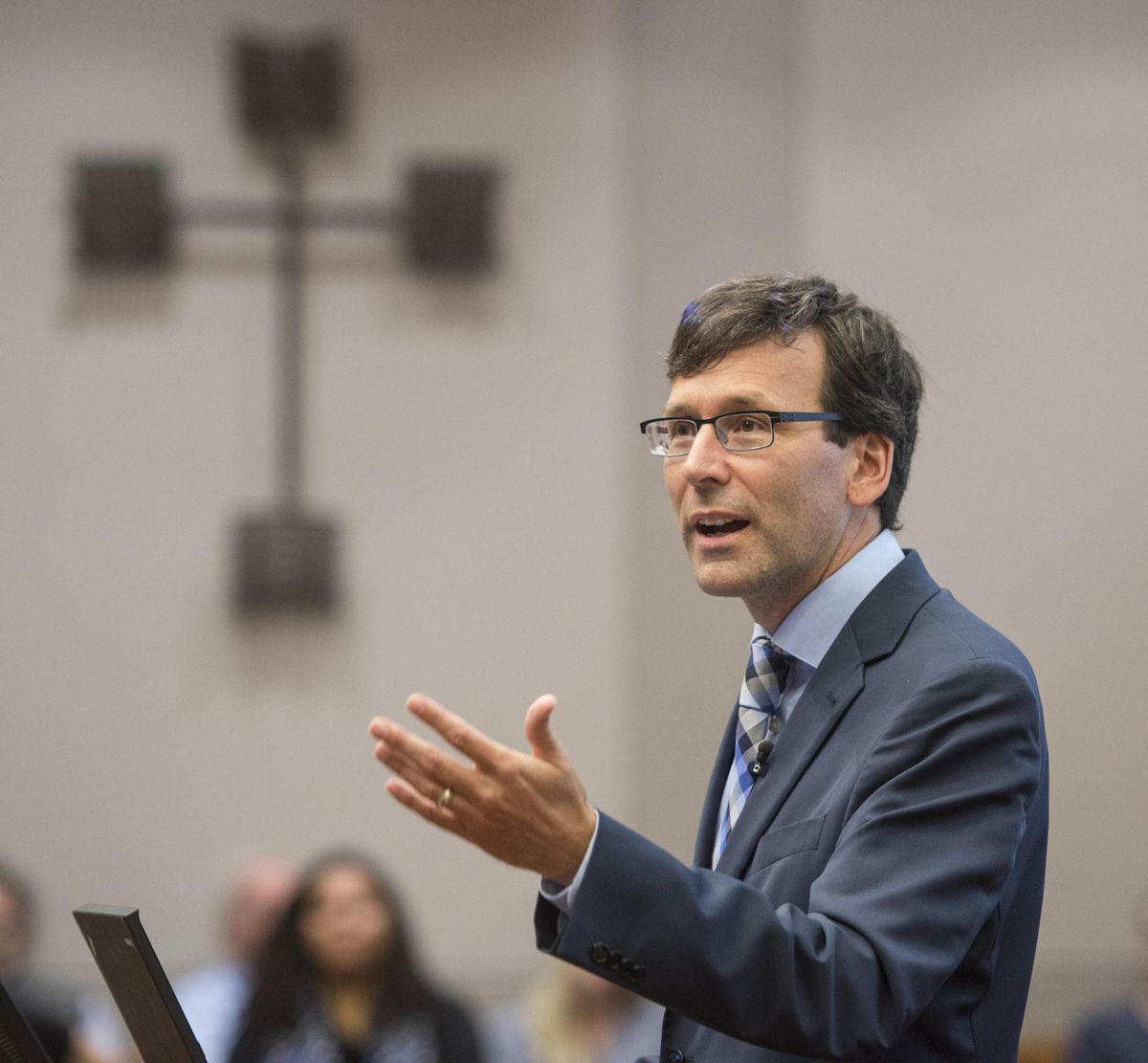At Gonzaga, Washington AG Ferguson lays out case for DACA defense

For the second time this year, Washington state Attorney General Bob Ferguson spoke at Gonzaga University about a lawsuit his office has filed against the Trump administration.
On Friday afternoon, Ferguson broke down some of the legal theories in a pending case over the president’s decision to rescind DACA, the Obama-era program that protects immigrants who were brought to the United States illegally as children.
“This is the only country they know,” Ferguson said, shortly after playing a video clip of a DACA recipient who was taken across the southern border when she was an infant.
“From her perspective, she’s an American,” Ferguson said of the woman, who now attends the University of Washington. “The idea of being deported back to that country where she was born and spent all of six months of her life … it makes no sense to her, and it makes no sense to me.”
Nearly 800,000 people have been given work permits and temporary legal status under DACA, which stands for Deferred Action for Childhood Arrivals. Nearly 80 percent of them are of Mexican descent, and Ferguson contends that President Donald Trump’s policy is racially motivated. DACA recipients are known as “Dreamers.”
Earlier this month, U.S. Attorney General Jeff Sessions announced an “orderly, lawful wind-down” of the program over six months, calling it an unconstitutional abuse of executive power.
Washington, along with 14 other states and the District of Columbia, filed suit the next day, claiming Trump violated constitutional due process and equal-protection guarantees, as well as federal laws requiring certain procedures be followed before a complex program such as DACA is dismantled.
The lawsuit includes claims under the Administrative Procedure Act and the Regulatory Flexibility Act, which Ferguson stressed can be just as important as the constitutional claims that tend to appear in news headlines.
The Regulatory Flexibility Act, for example, requires the executive branch to consider how its actions would impact small businesses. If DACA is rescinded without adequate notice, Ferguson said, American businesses will face the sudden loss of hundreds of thousands of employees.
“Small businesses have plenty of Dreamers who are employees. They have invested in those employees. They trained them. They’re contributing to the success of their business,” he said. “Suddenly we’re telling those businesses those employees no longer work for them?”
Ferguson added that he doesn’t envy the Justice Department attorneys who will have to explain why the agency that once defended DACA now considers it unconstitutional.
“No court in our country has actually said that DACA is illegal,” Ferguson said.
And, until Sessions’ announcement, the Justice Department had “defended DACA and said DACA is legal and constitutional,” he said. “So this is a rather abrupt departure from where they’ve been in the past.”
Ferguson also expressed concern that information Dreamers willingly provided to the federal government would make them easy targets for deportation.
“It was made very clear upfront that information would never be used against Dreamers,” he said.
One student asked Ferguson why he decided to push the lawsuit before Congress runs out of time to pass a permanent Dream Act that would protect current DACA recipients.
Ferguson replied that he hopes Congress will pass that legislation. But, after cautioning that he didn’t want to point blame at either party, he called Congress “dysfunctional” and said he wouldn’t get his hopes up.
In March, Ferguson spoke at Gonzaga and Washington State University about another lawsuit involving immigration. He had led Washington to become the first state to formally challenge Trump’s first executive order restricting immigration from seven mostly Muslim countries.
“In every case you’re telling a story. You’re telling a story to the judge, or the justices, and you’re telling a story to the larger public as well,” Ferguson told Friday’s crowd, which included many law students. “Keeping that in mind, I think, is critically, critically important.”